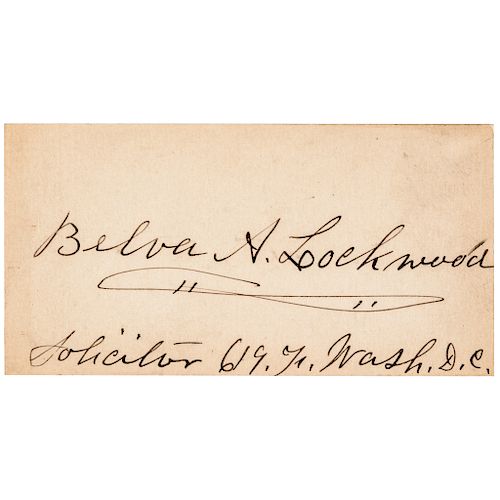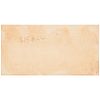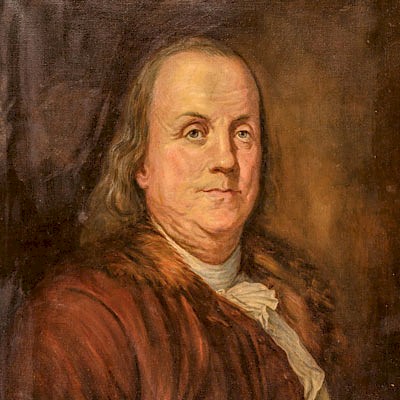Belva Lockwood Female Presidential Candidate 1884 + 1888 Signed Card
Lot 57
Estimate:
$350 - $450
Absentee vs Live bid
Two ways to bid:
- Leave a max absentee bid and the platform will bid on your behalf up to your maximum bid during the live auction.
- Bid live during the auction and your bids will be submitted real-time to the auctioneer.
Bid Increments
| Price | Bid Increment |
|---|---|
| $0 | $10 |
| $200 | $20 |
| $300 | $25 |
| $500 | $50 |
| $1,000 | $100 |
| $2,000 | $200 |
| $3,000 | $250 |
| $5,000 | $500 |
| $10,000 | $1,000 |
| $20,000 | $2,000 |
| $30,000 | $2,500 |
| $50,000 | $5,000 |
| $100,000 | $10,000 |
| $200,000 | $20,000 |
| $300,000 | $25,000 |
| $500,000 | $50,000 |
About Auction
By Early American History Auctions
Aug 24, 2019
Set Reminder
2019-08-24 12:00:00
2019-08-24 12:00:00
America/New_York
Bidsquare
Bidsquare : Autographs, Colonial Currency, Political Americana, Historic Guns
https://www.bidsquare.com/auctions/early-american-history-auctions/autographs-colonial-currency-political-americana-historic-guns-4347
Historic Autographs • Colonial Currency • American Civil War Colonial Era • Revolutionary War • Political Americana • Black History Early American History Auctions auctions@earlyamerican.com
Historic Autographs • Colonial Currency • American Civil War Colonial Era • Revolutionary War • Political Americana • Black History Early American History Auctions auctions@earlyamerican.com
- Lot Description
Autographs
Belva Lockwood Female Presidential Candidate 1884 & 88 Being the First Woman to Appear on Official Ballots!
BELVA ANN BENNETT LOCKWOOD (1830-1917). One of the first female lawyers in the United States, in 1879 allowed to practice before the United States Supreme Court, becoming the First Woman Attorney given this privilege. Presidential Candidate in 1884 and 1888 on the ticket of the National Equal Rights Party becoming the First Woman Candidate to appear on Official Ballots! American attorney, politician, educator, and author, working for women's rights, including women's suffrage and the Temperance movement.
Scarce historic Female Presidential Candidate in 1884 and 1888, Signed Card, "Belva A. Lockwood" with "Solicitor 619. Js, Wash. D.C." being her Title and City, Crisp Very Fine. Card measures about 4.25" x 2.25" on light tan card stock, her signature being written in bold black ink. Lockwood graduated from law school in Washington, D.C. and became one of the first female lawyers in the United States. In 1879, she successfully petitioned Congress to be allowed to practice before the United States Supreme Court, becoming the first woman attorney given this privilege. Late in 1880, Lockwood became the First Woman lawyer to argue a case before the U.S. Supreme Court, arguing Kaiser v. Stickney and later United States v. Cherokee Nation. Lockwood later sponsored Samuel R. Lowery to the Supreme Court bar, making him the fifth Black attorney to be admitted, and ultimately the First Black attorney to argue a case before the court. Lockwood ran for president in 1884 and 1888 on the ticket of the National Equal Rights Party and was the first woman to appear on official ballots. Reverse of card is blank. Scarce with title and city, her vivid signature "Belva A. Lockwood" measuring a huge 4" long!
Belva Ann Bennett Lockwood (October 24, 1830 - May 19, 1917) was an American attorney, politician, educator, and author. She was active in working for women's rights, including women's suffrage. Lockwood overcame many social and personal obstacles related to gender restrictions. After college, she became a teacher and principal, working to equalize pay for women in education. She supported the movement for world peace, and was a proponent of the Temperance movement.
Lockwood graduated from law school in Washington, D.C. and became one of the First Female lawyers in the United States. In 1879, she successfully petitioned Congress to be allowed to practice before the United States Supreme Court, becoming the First Woman attorney given this privilege. Lockwood ran for president in 1884 and 1888 on the ticket of the National Equal Rights Party and was the First Woman to appear on official ballots.
Belva Lockwood was the first woman (or second, depending on one's opinion, after Victoria Woodhull) to run for President of the United States. Lockwood ran as the candidate of the National Equal Rights Party. She ran in the presidential elections of 1884 and 1888.
Her running mate was Marietta Stow in 1884. In 1888 she originally ran with Alfred H. Love, except when he was nominated he wasn't informed of it. When he found out, as the president of the Universal Peace Union and a lifelong world peace activist, he was horrified to run as vice president to the commander in chief, and dropped out of the race. Lockwood was in a scramble with no vice president, so, in the end, she chose Charles Stuart Weld, son of progressives Theodore Dwight Weld and Angelina Grimk.
Representing a third party without a broad base of support, Lockwood did not have a serious chance of winning the presidency. Notable American Women stated she received about 4,100 votes. Since women could not vote, and most newspapers were opposed to her candidacy, it was unusual that she received any votes. In an 1884 article, the Atlanta Constitution referred to her as "old lady Lockwood" and warned male readers of the dangers of "petticoat rule".
On January 12, 1885, Lockwood petitioned the United States Congress to have her votes counted. She told newspapers and magazines that she had evidence of voter fraud. She asserted that supporters had seen their ballots ripped up and that she had "received one-half the electoral vote of Oregon, and a large vote in Pennsylvania, but the votes in the latter state were not counted, simply dumped into the waste basket as false votes."
- Shipping Info
-
Early American provides in-house worldwide shipping. Please contact us directly if you have questions about your specific shipping requirements.
-
- Buyer's Premium



 EUR
EUR CAD
CAD AUD
AUD GBP
GBP MXN
MXN HKD
HKD CNY
CNY MYR
MYR SEK
SEK SGD
SGD CHF
CHF THB
THB




![[MEDICAL HISTORY] Craig Gutta-Percha Microscope Base](https://s1.img.bidsquare.com/item/m/2904/29046456.jpeg?t=1Ttr6w)
![[CIVIL WAR] William T. Sherman CDV Portrait](https://s1.img.bidsquare.com/item/m/3259/32590994.jpeg?t=1UVtrf)
![[LINCOLN] Abraham & Mary Todd CDV Portraits](https://s1.img.bidsquare.com/item/m/3194/31943004.jpeg?t=1UDVtx)
![[THEODORE ROOSEVELT] Naval Commission, 22 May 1908](https://s1.img.bidsquare.com/item/m/3258/32582659.jpeg?t=1UUDch)
![[LINCOLN] 1860 Benjamin Grierson Composed Anti-Slavery Songsheet](https://s1.img.bidsquare.com/item/m/3150/31508307.jpeg?t=1Urgsc)
![[LINCOLN] 8th IL Cav. Vet Met Lincoln](https://s1.img.bidsquare.com/item/m/3150/31503939.jpeg?t=1UreKU)
![[CIVIL WAR] Black Soldier's Memorial Portrait, 1st Missouri Colored Infantry](https://s1.img.bidsquare.com/item/m/2985/29854261.jpeg?t=1TPbS9)
![[AFRICAN AMERICANA] Well-Dressed Black Gentleman](https://s1.img.bidsquare.com/item/m/3260/32600916.jpeg?t=1UVFyL)
